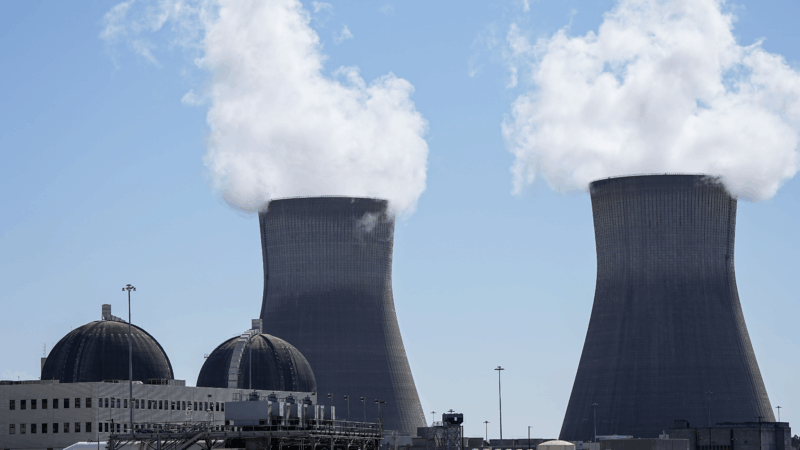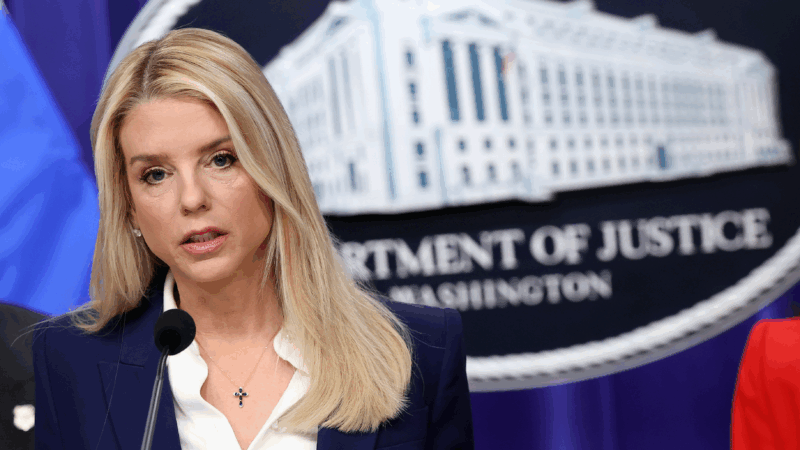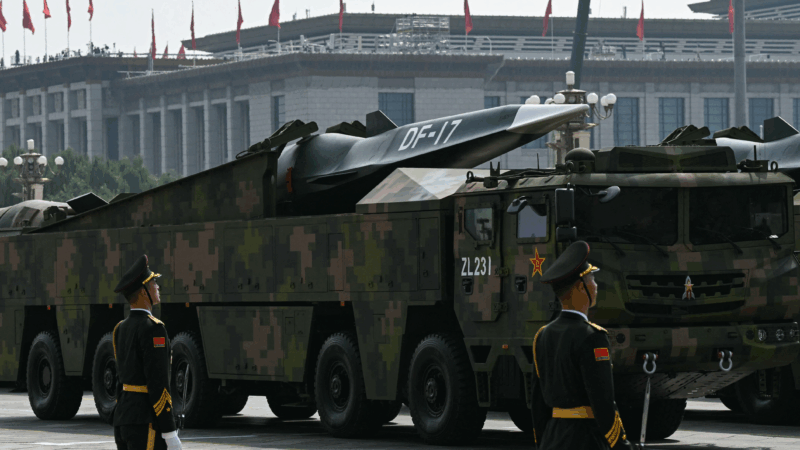Trump seeks to boost nuclear industry and overhaul safety regulator
President Trump signed a series of executive orders aimed at boosting nuclear power and restructuring the independent Nuclear Regulatory Commission during an Oval Office event on Friday.
“It’s time. It’s time for nuclear and we’re going to do it very big,” President Trump told reporters, while flanked by executives from the nuclear industry.
NPR had previously reported on the executive orders, which have been circulating for several weeks.
One order calls for major reforms at the Nuclear Regulatory Commission, the independent agency that oversees America’s nuclear reactors. The order calls for approvals of new nuclear reactor designs to be completed in no more than 18 months. It also asks the agency to reconsider strict radiation standards that are currently used to ensure safety for workers and the public. Finally, it would require restructuring of the NRC itself and a wide-ranging revision of regulations to be conducted in conjunction with the White House and Elon Musk’s Department of Government Efficiency.
Some members of the nuclear industry applauded the reform. “The safety regulations that we put in place were largely reactionary to Three Mile Island,” says Isaiah Taylor, CEO and Founder of Valar Atomics, a startup that seeks to build small modular reactors. “You know there’s a lot of advanced reactor architectures that just don’t share the same characteristics as the reactors that we were building in the 60s and 70s.”
But others say the executive order has the potential to undermine nuclear safety. “An independent regulator is one who is free from industry and political influence,” says Allison Macfarlane, director of the School of Public Policy and Global Affairs at the University of British Columbia in Canada who was nominated by President Obama to serve as chair of the NRC from 2012 to 2014. “Once you insert the White House into the process, you don’t have an independent regulator anymore.”
The NRC has already been trying to reform itself. Last year, Congress passed a bipartisan law designed to accelerate the approval of new reactor designs.
As a result of the law, some changes were already underway. For example, approving reactor designs within 18 months can be done, “without sacrificing safety,” says a senior NRC official, who asked to remain anonymous because they were not authorized to speak to the press about the executive orders.
But outsiders are worried that if the agency is shaken up as promised, it could actually end up slowing approvals. The White House is already requiring that it be allowed to review new rules from the agency, adding time to its regulatory process, and a major reorganization could further slow things down.
Trump’s executive orders also call for accelerating nuclear research at national laboratories around the U.S., building nuclear reactors on federal lands and the resumption of uranium mining and enrichment on American soil.
Trump signed the executive order flanked by executives and CEOs from large and small nuclear companies. Many seemed jubilant.
“Thank you Mr. President,” said Jacob DeWitte, the CEO of Oklo, a startup seeking to build small nuclear reactors. “Changing the permitting dynamics is going to help things move faster. We’re seeing private investment move into this space like we’ve never seen before.”
Oklo had a combined license for its experimental Aurora reactor denied by the NRC in 2022 due to “significant information gaps in its description of Aurora’s potential accidents,” according to a press release from the agency.
Oklo’s stock was up around 25% today.
Macfarlane says she doubts these executive orders will fundamentally change the fact that nuclear power remains costly to develop and build. But she’s worried about the consequences.
“I’m very concerned this could affect nuclear safety in the U.S.,” she says.
Shootings at school and home in British Columbia, Canada, leave 10 dead
A shooting at a school in British Columbia left seven people dead, while two more were found dead at a nearby home, authorities said. A woman who police believe to be the shooter also was killed.
Trump’s EPA plans to end a key climate pollution regulation
The Environmental Protection Agency is eliminating a Clean Air Act finding from 2009 that is the basis for much of the federal government's actions to rein in climate change.
Pam Bondi to face questions from House lawmakers about her helm of the DOJ
The attorney general's appearance before the House Judiciary Committee comes one year into her tenure, a period marked by a striking departure from traditions and norms at the Justice Department.
The U.S. claims China is conducting secret nuclear tests. Here’s what that means
The allegations were leveled by U.S. officials late last week. Arms control experts worry that norms against nuclear testing are unraveling.
From gifting a hat to tossing them onto the rink, a history of hat tricks in sports
Hat tricks have a rich history in hockey, but it didn't start there. For NPR's Word of the Week, we trace the term's some 150-year-history and why it's particularly special on the hockey rink.
Ukrainian sled racer says he will wear helmet honoring slain soldiers despite Olympic ban
Vladyslav Heraskevych, a skeleton sled racer, says he will wear a helmet showing images of Ukrainian athletes killed defending his country against Russia's full-scale invasion. International Olympic Committee officials say the move would violate rules designed to keep politics out of the Olympics.








